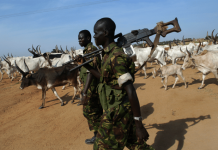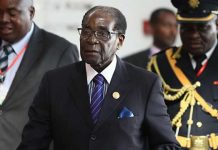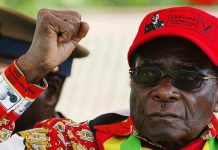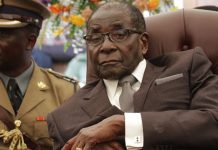RECENT media reports which suggest that Sweden offered to assist Zimbabwe’s efforts towards re-engagement with the international community only if, President Emmerson Mnangagwa and MDC President Nelson Chamisa call a truce are worrisome. They reveal Zimbabwe as a country to whom a different set of rules are applied rather than a universal practice.These conditions also reveal that there has been a failure to grasp the reasons standing in the way of dialogue, which has largely to do with the internal approach to issues and the huge egos at play in the country. One could even posit that the differences are irreconcilable yet very legitimate.
A case of mixed/double standards
When I first heard of the news I thought this could be a great idea, but to place this as a condition to supporting a troubled country to find its feet is very unusual, patronising, and certainly not the way to deal with another sovereign state. Much as I realise the need to get the Zimbabwe domestic politics sorted out, I find that there are rules and conditionalities applied to Zimbabwe that is not applied to other countries. Questions like were these conditions applied to Kenya when Uhuru Kenyatta and Raila Odinga had a disputed election and the two were at each other’s throats? Have conditions been placed on Yoweri Museveni in Uganda to first engage with Bobi Wine before support could be rendered to the country? Even closer home has Cyril Ramaposa been asked to first, engage with Julius Malema in South Africa before support to South Africa can be extended?
A lot has been said about the rule of law and human rights record being observed as conditions for normalisation of relations, particularly in the case of Zimbabwe. This is all well and good, and I would agree with that. I just have a problem if the countries doing so do not apply the same rules and conditions in other countries they operate in. We all know of the murder of Jamal Khashoggi, the veteran Saudi journalist who Turkish officials say was killed in the Saudi embassy in Istanbul. The stories of Human Rights abuses in the Philippines have had the UN Human Rights Group calls for a probe, with a staggering number of unlawful deaths and police killings in the context of the so-called war on drugs, as well as killings of human rights defenders. The record in Egypt has been no better, with Mohamed Morsi, former President dying in June 2019 while under arrest. The list is long. Yet the conditions being waived on Zimbabwe are not waived on all these countries. I do not and will not condone even a single rights abuse on anyone but it is the application of double standards becoming the hallmark of global politics that is not right. The growing collapse of multilateralism is partly to blame, especially under Trump’s foreign policy. However, outside the big powers to whom unilateralism seems to be the new way of doing things, countries with a history of objectivity and fair play should do better.
So why should Zimbabwe be treated differently? It goes on to show how suspicious the world is towards Zanu PF, thanks to the late Robert Mugabe for having been arrogant enough to earn the country the pariah state that has been for almost two decades. The threat is no longer about withholding what is being done; it is about not imposing anything, but rather retaining and maintaining what is already there. Talk of another definition of political ransom.
Sanctions now a tired policy
Lest people forget. Zimbabwe has been ostracised since the time of the farm invasions and the bungled land reforms of the early 2000s and has been on US sanctions since 2002. Although these sanctions were supposedly targeted at Mugabe and his cabal, the sad reality is, people at the grassroots level are the ones bearing the brunt. The US extended those sanctions again by one year in March 2019. But is it normal to put a country on sanctions for more than two decades? The Americans tried it on Cuba for 50 years and it failed. The Castro’s hung on, and up to now, the country is still on its feet with the same regime the sanctions intended to topple.
Timing is everything, and true friends of Zimbabwe should be rethinking their policies. Over the years, Zimbabwe has been its own voice against sanctions. This time, there seems to be a growing continental outcry against sanctions on Zimbabwe, as was seen by the declaration at the 39th SADC Heads of State Summit in Dar es Salaam in August 2019 where they declared 25 October a day of action against sanctions on Zimbabwe. Incoming SADC Chairman Magufuli called on AU to lobby for the lifting of those sanctions and chances are this might be brought up at the UN General Assembly this month. This is unprecedented. SADC, and soon the AU, will be making the sanctions against Zimbabwe their issue, and no longer just a Zimbabwe problem. As Magufuli was quoted saying, “This brotherly country, after all, has now opened a new chapter and it is ready to engage with the rest of the world. It is, therefore, in the interest of all parties concerned, to see these sanctions removed” You have controversial, but influential politicians like Julius Malema, who has come out openly criticizing sanctions and calling for their lifting.
Sanctions and global political ostracism have at best been controversial, and at worst been counterproductive. Sometimes they produce outcomes that are unintended and tend to defeat the original aims of the sanctions themselves. According to BBC correspondent Jonathan Marcus, sanctions tend to hurt the common man in the targeted countries rather than the political elites. Professor of economics at University of Birmingham, Colin Rowat, wrote that the longer sanctions last, the less successful they are likely to be. Further, sanctions can galvanise national opinions against an existential threat and unify the internal power structures they are trying to weaken. This was true of Vladimir Putin, who became more popular in Russia following the imposition of sanctions for invading Crimea. The same outcome may be the by- product of US sanctions against Iran over the ongoing tiff in the gulf. Indeed it may explain the survival of Nicolás Maduro in Venezuela as the military has decided to stand by him against the existential threat from the USA. If you look at sanctions against Zimbabwe, the witty Mugabe used them to cover for each and every single economic crisis that visited the country on account of his own disastrous policies. Sanctions provided that legitimate scapegoat.
The conditions attributed to the Swedish statement also show that the opposition in Zimbabwe has been quite successful in portraying the image that they are a relevant stakeholder in government. This is an important victory for any opposition contesting for power.
Achilles heel for the opposition
At the same time when the opposition is being made a condition for some kind of support to the country, this also falls into the hands of the government when it accuses the opposition of doing the bidding of some external forces. Again the case of the undesired consequences. Now that the whole of Africa is calling for the lifting of sanctions against Zimbabwe, it is difficult for anyone within the country, the opposition in particular to be seen or heard calling for the retention of those sanctions ahead of the March 2020 expiry of the current extension by the USA.. Will another trip be made to Washington to again call for the retention of sanctions at the ends of the one-year extension by those who made the trip last time? That would be political suicidal of the opposition to do, unless this is carried out nicodemously. Sanctions are soon turning out to be the opposition’s Achilles heel.
Ideally, the Swedish proposition is a good one, and I have always felt that the failure by Zanu PF and MDC to find each other is a missed opportunity and an unnecessary cost to the progress Zimbabwe would have and should have made if such rapprochements had been made. One needs to look at our neighbours in Mozambique, where Frelimo and Renamo, who fought on opposite sides during the liberation war, have sought accommodation and compromise. Mozambique’s has been the beneficiary in the sense that there is political stability, which brings certainty, the most important ingredient for foreign investment. Or just look at Kenya, where the famous handshake between Rail Odinga and Uhuru Kenyatta in March 2018 has changed the situation in Kenya and effectively fumigated the political atmosphere that had been contaminated by ethnically charged political contestation.









